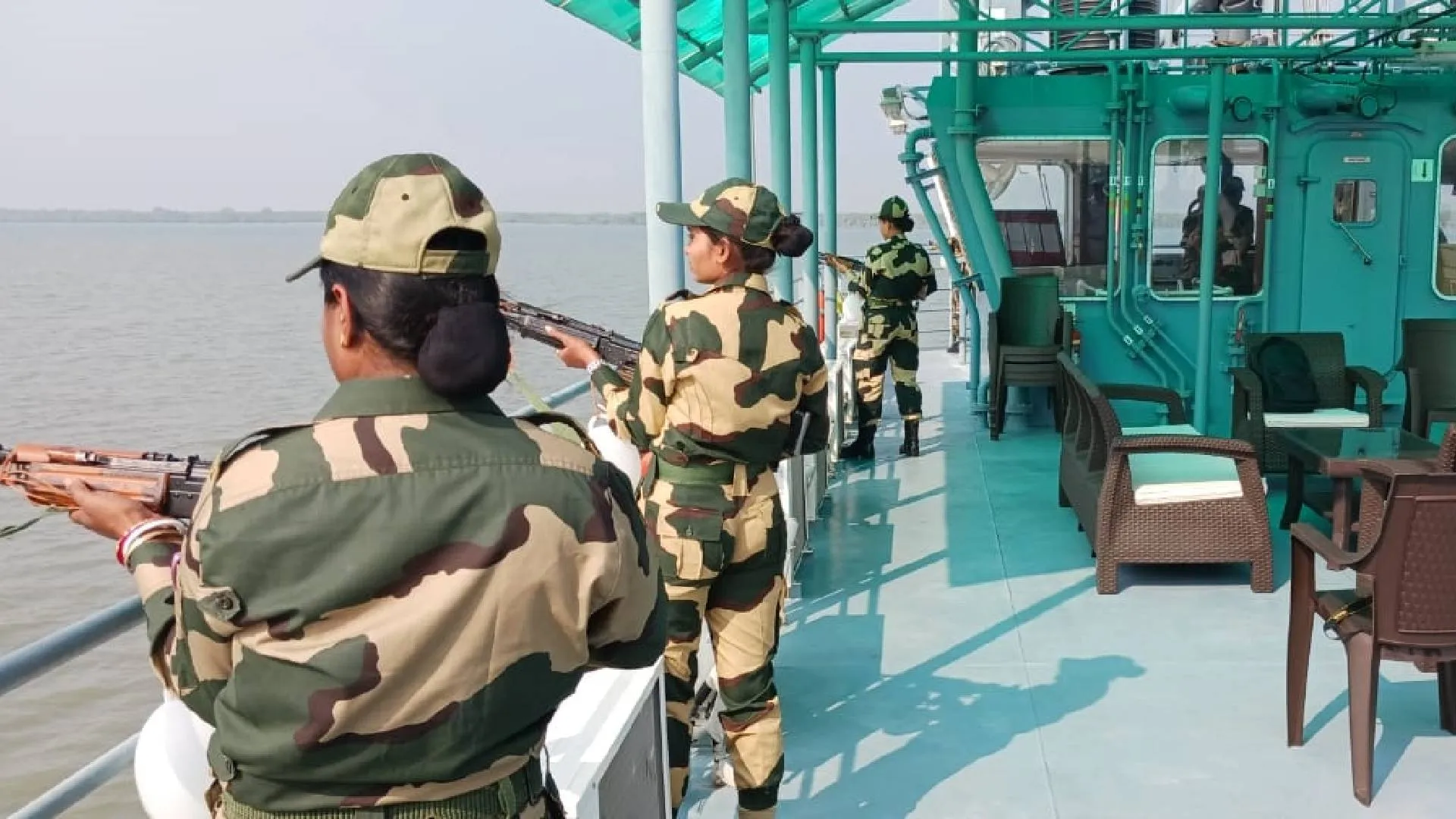In response to growing tensions with Bangladesh, India has enhanced its water surveillance along the 4,000-km border shared between the two countries. This heightened security focus specifically targets the northeastern states and West Bengal, where the Border Security Force (BSF) has established new floating border outposts in the Sunderbans and across all major rivers in the Eastern Command.
India shares vast water bodies with Bangladesh, including the Brahmaputra, Ganga, and the Sunderbans, which are home to over 53 transborder small rivers and rivulets. These waters are particularly vulnerable, and security experts emphasize the need for continuous surveillance. According to a BSF source, “We are patrolling the areas 24×7, and more floating outposts will certainly enhance our ability to safeguard the border.”
Rising Terrorism Concerns in the Region
The need for enhanced water surveillance has become even more urgent following the arrest of three terror suspects from Bengal in recent days. Two suspects, affiliated with the Ansarullah Bangla Team, were apprehended in Murshidabad, while a third, Javed Munshi, linked to the Tehreek-ul-Mujahideen, was arrested in Canning. These arrests highlight growing concerns about the use of water routes for illegal and terror activities.
Security experts warn that the Eastern Command’s responsibility for overseeing vast rivers is crucial in preventing security breaches. To address this, the BSF has set up floating outposts in the Sunderbans and plans to expand these measures to other waterlogged areas along the border.
Historical Terrorist Use of Water Routes
Experts also point to the history of Pakistani terrorists entering Jammu and Kashmir via Bengal’s waters before 1970, and they believe that similar tactics could be used again with the change of regime in Bangladesh. Intelligence sources confirm that Pakistani-trained militant Javed Munshi, arrested in Canning, had planned to travel to Bangladesh via the water route. This raises serious concerns about Bangladesh becoming a haven for terrorist groups.
The Need for Comprehensive Waterway Security
The increasing use of water routes for terror-related activities has placed a spotlight on the vulnerability of these areas. Intelligence officers and security experts agree that thorough surveillance, covering all water routes along the border, is critical to national security. The situation has escalated with the arrest of key terrorists attempting to enter India via water routes, signaling a growing threat that requires immediate and sustained action.
The Indian government’s strengthened water surveillance is seen as a necessary step to secure the border and curb the growing security challenges posed by the use of trans-border waterways for illicit activities.























